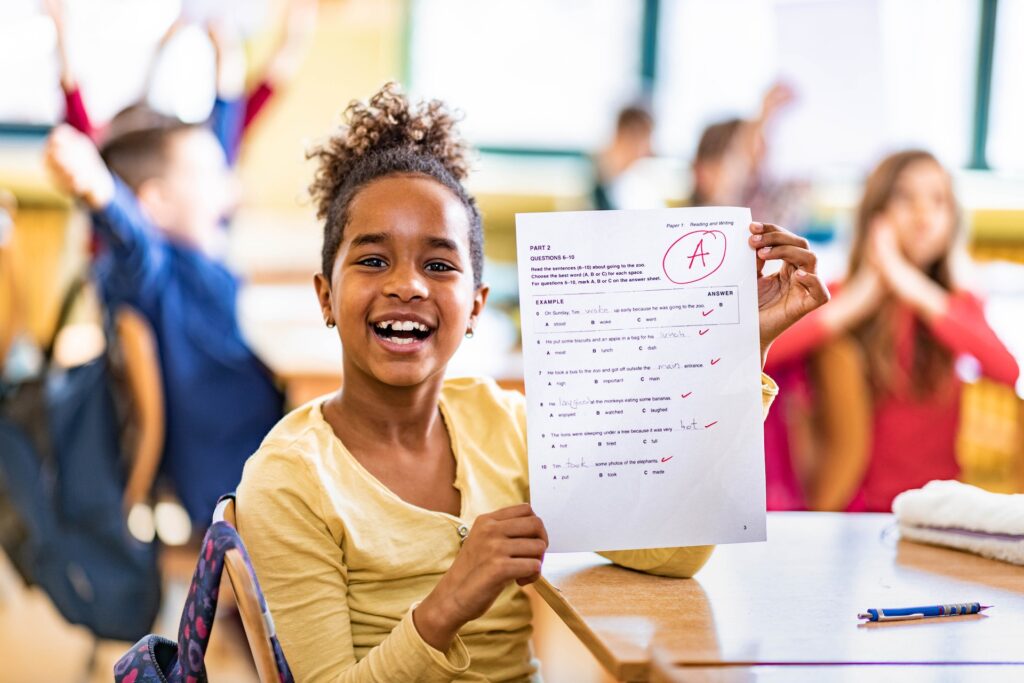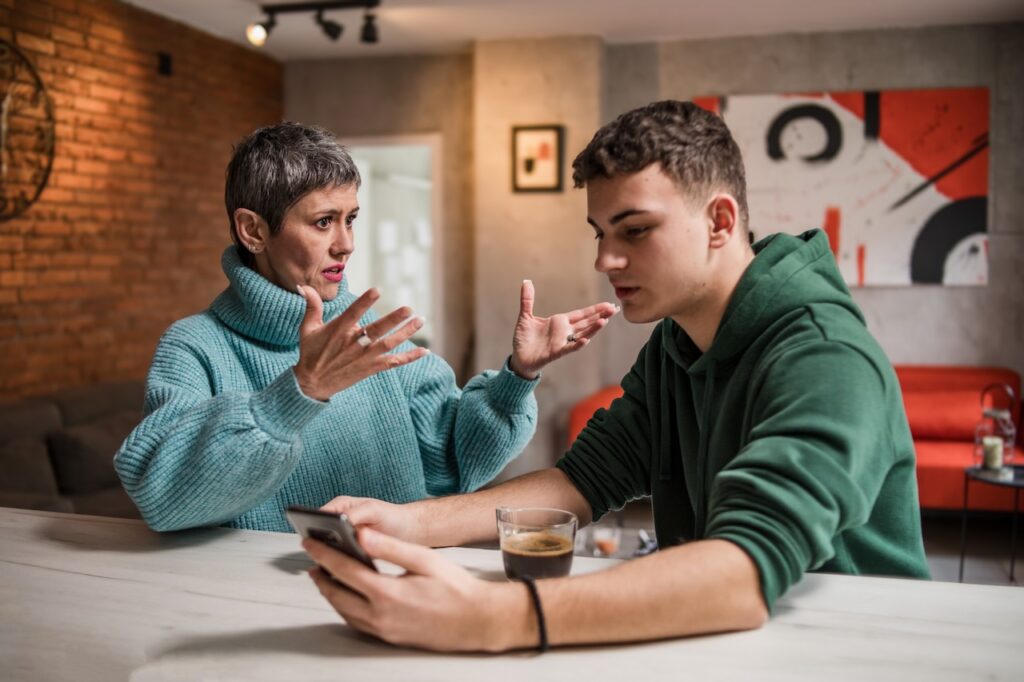Do you and your kids talk about report cards together? A report card discussion is a key step in staying looped in on your child’s school progress, helping you get insights into learning beyond just letter marks and grades.
For many parents and guardians, report cards indicate how well (or not-so-well) their child performs at school. Report cards are an important reminder for parents to check in on their child’s academic performance and development. The report card check-in plays a key role: studies show that children whose parents are more involved in their education have higher levels of academic performance. source
studies show that children whose parents are more involved in their education have higher levels of academic performance
ncbi.nlm.nih.gov
Learning how to interpret the information provided on a report card is essential. Reading a report card correctly is key to assessing your child’s progress. The first-semester report card is especially important as if there are any issues, parents and students can make a plan to get ahead of any challenges.
Use these tips for your Report Card discussion
- Review the Report Card—On Your Own
Your initial inclination might be to search for areas where your child needs to improve when you receive the report card. Before you talk to your child about the results, processing all the information yourself is crucial. Check out this Parent Guide to State and Local Report Cards. - Plan a Report Card Conversation
It’s crucial to prepare for the report card conversation in advance. Always begin and finish the conversation with positive news. If you have negative comments to share, follow it up with a position ones! Beginning with positive news will give students the self-assurance they need to process any negative news.
Additionally, ending with good news will give them a sense of empowerment rather than defeat. Learn more about the importance of the report card chat. - Meet Privately With Your Child
Sit down together for an interruption-free report card chat. If you have more than one child, talk to each one separately. Ensure you allow adequate time to talk about their academic performance and how they feel about school in general.
Understandably, children may be uncomfortable talking about their report cards. So, ask your kid how they felt like they did before letting them see the report. This will show how aware they are of their own performance.
Ask what they took away from each subject. This will help gauge how well your child thought they did and what they can improve on for the second semester. - Praise, Praise, Praise
Share your pride in your child’s accomplishments in the subjects they did well in, and point out any advancements they’ve made. Children need encouragement just as much as they need constructive criticism. - Strategize for Improvement
Talk to your child about areas where they may improve, and together, you devise a strategy for the second semester to address any issues. And always remember to end positively by expressing how proud you are of them. Check out these 5 tips for dealing with a bad report card.
Get informed: Everything you need to know about report cards.
Need Report Card Help?
The team at GradePower Learning is here to help you take the next steps to better grades. Schedule a report card consultation and book and assessment today.
In-person or online, enrollment is now open! Find a location near you to get started.





